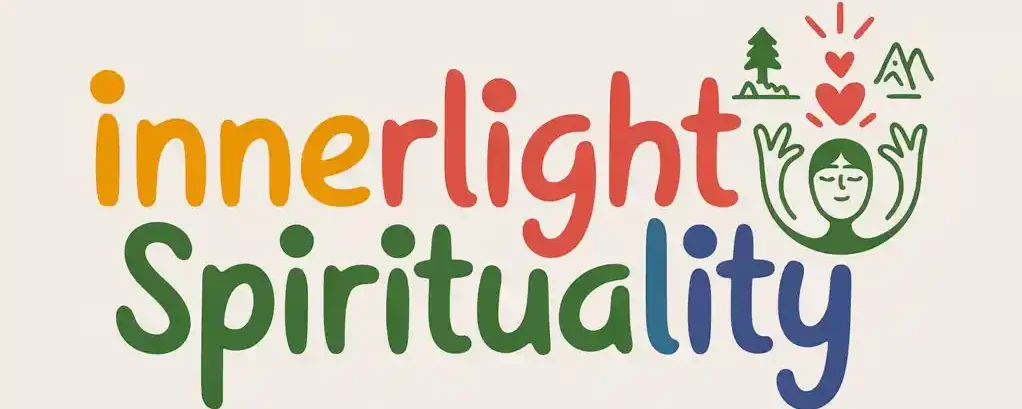16 Bible Verses About Forgiveness and Healing: Transform Your Life
Forgiveness and healing are essential aspects of spiritual growth and well-being.
The Bible offers profound wisdom on these topics, providing guidance and comfort to those seeking reconciliation and restoration.
This post explores 16 powerful Bible verses that illuminate the transformative power of forgiveness and healing.

Key Takeaways
- Forgiveness is a divine command: God instructs us to forgive others as He has forgiven us.
- healing often follows forgiveness: Many verses link spiritual and physical healing with the act of forgiving.
- Confession leads to healing: Admitting our faults to others can bring about restoration.
- Forgiveness is unlimited: Jesus teaches that we should forgive without keeping count.
- God’s forgiveness is complete: When God forgives, He chooses to forget our sins.
- Forgiveness brings freedom: Letting go of grudges liberates us from bitterness.
- Prayer plays a role in forgiveness: Praying for those who hurt us can lead to healing.
- Forgiveness is a choice: We must decide to forgive, even when it’s difficult.
- God’s grace enables forgiveness: Through Christ, we receive the power to forgive others.
- Forgiveness restores relationships: It can mend broken bonds between people.
- Self-forgiveness is important: We must also learn to forgive ourselves.
- Forgiveness is a process: It may take time and effort to fully forgive.
- Forgiveness does not equal trust: We can forgive without immediately restoring trust.
- Forgiveness benefits the forgiver: It brings peace and emotional healing.
- Forgiveness reflects God’s character: By forgiving, we imitate God’s mercy.
- Forgiveness is a testament to faith: It demonstrates our trust in God’s justice.
The Foundation of Forgiveness
Forgiveness forms the cornerstone of Christian faith. The Bible teaches that God’s forgiveness of our sins should inspire us to forgive others.
This principle is clearly stated in Ephesians 4:32: “Be kind and compassionate to one another, forgiving each other, just as in Christ God forgave you.”
Forgiveness is not just a suggestion but a fundamental aspect of Christian living. It reflects the very nature of God and His desire for reconciliation among His creation.
When we forgive, we align ourselves with God’s heart and participate in His redemptive work in the world.
The act of forgiveness can be challenging, especially when we’ve been deeply hurt. However, embracing forgiveness opens the door to emotional and spiritual freedom, allowing us to experience the fullness of God’s love and grace in our lives.
The Link Between Forgiveness and Healing
Many Bible verses connect forgiveness with healing, suggesting that the two are intertwined. James 5:16 illustrates this connection: “Therefore confess your sins to each other and pray for each other so that you may be healed. The prayer of a righteous person is powerful and effective.”
The relationship between forgiveness and healing is profound and multifaceted. When we forgive, we release the burden of resentment and bitterness that can weigh heavily on our hearts and minds.
This emotional and spiritual unburdening often leads to physical healing as well.
Studies have shown that forgiveness can reduce stress, lower blood pressure, and improve overall well-being. By choosing to forgive, we open ourselves to the healing power of God’s love and grace.
God’s Unlimited Forgiveness

The Bible portrays God’s forgiveness as boundless and complete. Psalm 103:2-4 beautifully expresses this truth: “Bless the LORD, O my soul, and forget not all his benefits, who forgives all your iniquity, who heals all your diseases.”
God’s forgiveness knows no limits or conditions. Unlike human forgiveness, which can be partial or grudging, God’s forgiveness is all-encompassing and transformative.
When God forgives, He chooses to remember our sins no more, offering us a clean slate and a fresh start.
This unlimited forgiveness serves as a model for our own forgiveness of others.
While we may struggle to forgive completely, we can strive to emulate God’s boundless mercy and grace in our relationships.
Forgiveness as a Command
Jesus makes it clear that forgiveness is not optional for His followers. In Matthew 6:14-15, He states: “For if you forgive others their trespasses, your heavenly Father will also forgive you, but if you do not forgive others their trespasses, neither will your Father forgive your trespasses.”
The command to forgive is not merely a suggestion but a crucial aspect of our spiritual life. Jesus ties our willingness to forgive others directly to our own experience of God’s forgiveness.
This connection underscores the importance of forgiveness in our relationship with God and others.
Forgiveness is not always easy, but it is always necessary for spiritual growth and maintaining a healthy relationship with God.
By choosing to forgive, we align ourselves with God’s will and open ourselves to His transformative work in our lives.
The Power of Confession

Confession plays a crucial role in both forgiveness and healing. 1 John 1:9 assures us: “If we confess our sins, he is faithful and just to forgive us our sins and to cleanse us from all unrighteousness.”
Confession is a powerful act that brings hidden things into the light. When we confess our sins to God and to others, we break the power of secrecy and shame.
This openness creates space for God’s forgiveness and healing to flow into our lives and relationships.
The act of confession also fosters humility and vulnerability, qualities that are essential for genuine forgiveness and reconciliation.
By acknowledging our faults and seeking forgiveness, we participate in the healing process that God desires for us.
Forgiveness Without Limits
When Peter asked Jesus about the limits of forgiveness, Jesus’ response was clear. Matthew 18:21-22 recounts: “Then Peter came up and said to him, ‘Lord, how often will my brother sin against me, and I forgive him? As many as seven times?’ Jesus said to him, ‘I do not say to you seven times, but seventy-seven times.'”
Jesus’ teaching on unlimited forgiveness challenges our human tendency to keep score. By instructing us to forgive “seventy-seven times,” Jesus is essentially saying that there should be no limit to our forgiveness.
This radical approach to forgiveness reflects God’s own unlimited mercy towards us.
Practicing unlimited forgiveness requires a shift in our mindset and a reliance on God’s grace.
It means choosing to forgive even when the offense is repeated, trusting that God will work in the situation for good.
The Healing Power of Forgiveness
Forgiveness can bring about physical and emotional healing. Mark 2:5 demonstrates this: “When Jesus saw their faith, he said to the paralyzed man, ‘Son, your sins are forgiven.'”
The connection between forgiveness and healing is a recurring theme in the Bible.
Jesus often linked the forgiveness of sins with physical healing, suggesting a deep connection between spiritual and physical well-being.
When we forgive or receive forgiveness, we open ourselves to God’s healing power.
Research has shown that forgiveness can lead to improved mental and physical health, including reduced stress, anxiety, and depression.
By embracing forgiveness, we not only obey God’s command but also position ourselves to experience His healing in all areas of our lives.
Forgiveness as a Path to Peace
Choosing to forgive can lead to inner peace. Colossians 3:13 advises: “Bear with each other and forgive one another if any of you has a grievance against someone. Forgive as the Lord forgave you.”
Forgiveness is a powerful tool for achieving inner peace and harmony in relationships. When we hold onto grudges and resentment, we carry a heavy burden that affects our emotional and spiritual well-being.
By choosing to forgive, we release this burden and open ourselves to experiencing God’s peace.
The peace that comes from forgiveness is not just the absence of conflict but a positive state of well-being. It allows us to move forward in our relationships and life with a sense of freedom and lightness.
The Role of Faith in Forgiveness
Faith plays a crucial role in our ability to forgive. Luke 17:3-4 teaches: “Pay attention to yourselves! If your brother sins, rebuke him, and if he repents, forgive him, and if he sins against you seven times in the day, and turns to you seven times, saying, ‘I repent,’ you must forgive him.”
Faith in God’s goodness and justice enables us to forgive even when it seems impossible.
When we trust that God is in control and will ultimately bring about justice, we can release our need for vengeance and embrace forgiveness.
This faith-filled approach to forgiveness aligns us with God’s heart and His plans for reconciliation.
Forgiveness rooted in faith also recognizes that we all fall short and need God’s forgiveness. This humility and self-awareness can soften our hearts towards others who have wronged us.
God’s Forgiveness as Our Model
We are called to model our forgiveness after God’s. Ephesians 1:7 reminds us: “In him we have redemption through his blood, the forgiveness of our trespasses, according to the riches of his grace.”
God’s forgiveness serves as the ultimate example for how we should forgive others. His forgiveness is complete, unconditional, and transformative.
When we forgive as God forgives, we participate in His divine nature and extend His grace to others.
Modeling our forgiveness after God’s doesn’t mean it will always be easy or instantaneous. It’s a process that requires intentionality and often involves a journey of healing.
However, as we align our hearts with God’s, we can experience the freedom and joy that come from truly forgiving.
The Freedom of Forgiveness
Forgiveness liberates us from the burden of resentment. Romans 12:17 instructs: “Repay no one evil for evil, but give thought to do what is honorable in the sight of all.”
Choosing forgiveness over retaliation frees us from the cycle of bitterness and revenge.
When we hold onto grudges, we remain bound to the person who hurt us and the painful situation. Forgiveness breaks these chains, allowing us to move forward with freedom and peace.
The freedom that comes from forgiveness extends beyond our emotional state.
It can improve our relationships, enhance our mental and physical health, and open us up to new possibilities in life. By embracing forgiveness, we choose a path of liberation and growth.
Forgiveness and Prayer
Prayer can help us forgive those who have wronged us. Mark 11:25 advises: “And whenever you stand praying, forgive, if you have anything against anyone, so that your Father also who is in heaven may forgive you your trespasses.”
Prayer is a powerful tool in the process of forgiveness. It allows us to bring our hurt and anger before God, seeking His perspective and strength.
Through prayer, we can ask for the ability to forgive when it seems impossible and for healing from the pain we’ve experienced.
Praying for those who have hurt us can also soften our hearts towards them.
As we lift them up to God, we may begin to see them through His eyes of love and compassion, making forgiveness more attainable.
The Transformative Nature of Forgiveness
Forgiveness has the power to transform relationships. Proverbs 17:9 states: “Love prospers when a fault is forgiven, but dwelling on it separates close friends.”
The act of forgiveness can radically change the dynamics of a relationship. When we choose to forgive, we create an opportunity for healing, reconciliation, and renewed trust.
This doesn’t mean that all relationships will be fully restored, but forgiveness opens the door to that possibility.
Forgiveness also transforms us internally. As we practice forgiveness, we grow in empathy, compassion, and emotional maturity.
This personal transformation can positively impact all of our relationships and interactions.
Forgiveness and God’s Mercy
God’s mercy is the ultimate example of forgiveness. Micah 7:18-19 declares: “Who is a God like you, pardoning iniquity and passing over transgression for the remnant of his inheritance? He does not retain his anger forever, because he delights in steadfast love. He will again have compassion on us; he will tread our iniquities underfoot. You will cast all our sins into the depths of the sea.”
God’s mercy and forgiveness are rooted in His steadfast love for us. This passage beautifully illustrates how God not only forgives but completely removes our sins from us.
His forgiveness is complete and transformative, offering us a fresh start and a new identity in Him.
As recipients of God’s incredible mercy, we are called to extend that same mercy to others.
When we forgive as God forgives, we participate in His divine nature and become channels of His love and grace in the world.
The Healing of Forgiveness in Community
Forgiveness plays a crucial role in community healing. 2 Corinthians 2:7-8 advises: “So you should rather turn to forgive and comfort him, or he may be overwhelmed by excessive sorrow. So I beg you to reaffirm your love for him.”
Forgiveness is not just an individual act but a communal practice that can heal and strengthen relationships.
When forgiveness is practiced within a community, it creates an atmosphere of grace, trust, and mutual support.
This environment fosters deeper connections and allows for genuine reconciliation.
Communities that embrace forgiveness are better equipped to handle conflicts and challenges.
They demonstrate the transformative power of God’s love and serve as a witness to the world of the healing that comes through Christ.
Forgiveness as a Spiritual Practice
Practicing forgiveness is an essential part of spiritual growth. Luke 6:37 teaches: “Do not judge, and you will not be judged. Do not condemn, and you will not be condemned. Forgive, and you will be forgiven.”
Forgiveness is not a one-time event but an ongoing spiritual discipline. As we cultivate a forgiving heart, we align ourselves more closely with God’s character and His desires for our lives.
Regular practice of forgiveness helps us grow in humility, compassion, and spiritual maturity.
Incorporating forgiveness into our daily spiritual practices can transform our perspective on life and relationships.
It helps us maintain a heart of gratitude for God’s forgiveness and keeps us open to His transformative work in our lives.
FAQs About Forgiveness and Healing
How does forgiveness lead to healing?
Forgiveness releases negative emotions and stress, which can have positive effects on mental and physical health. It allows for emotional healing and can improve relationships, leading to overall well-being.
Is it necessary to forget the offense to truly forgive?
Forgiveness does not require forgetting the offense. It involves choosing not to hold the offense against the person anymore. You can remember what happened while releasing the anger and resentment associated with it.
How can I forgive someone who hasn’t apologized?
Forgiveness is a personal choice and does not depend on the other person’s actions. You can forgive for your own peace of mind, even if the offender has not apologized or shown remorse.
Does forgiving mean I have to trust the person again?
Forgiveness and trust are separate issues. You can forgive someone without immediately trusting them again. Trust often needs to be rebuilt over time through consistent actions.
How can I forgive myself for past mistakes?
Self-forgiveness involves acknowledging your mistakes, learning from them, and choosing to let go of self-blame. Recognize that everyone makes mistakes and focus on personal growth rather than dwelling on past errors.
Can forgiveness heal physical ailments?
While forgiveness primarily affects emotional and mental well-being, reducing stress and negative emotions can have positive effects on physical health. Some studies suggest that forgiveness can lead to improvements in various health conditions.
Forgiveness and healing are powerful forces that can transform lives. These Bible verses offer guidance and inspiration for those seeking to embrace forgiveness and experience its healing effects. By practicing forgiveness, we open ourselves to God’s grace and the possibility of restored relationships and inner peace.
Citations:
[1] https://9clouds.com/blog/15-blog-formatting-tips-increase-readers-time-on-page/
[2] https://blog.hubspot.com/marketing/blog-search-engine-optimization
[3] https://rankmath.com/blog/how-to-format-a-blog-post/
[4] https://storychief.io/blog/optimize-blog-posts-seo-visibility
[5] https://ghost.org/resources/how-to-format-a-blog-post/
[6] https://www.webfx.com/seo/learn/blog-structure-for-seo/
[7] https://www.wix.com/blog/blog-format
[8] https://www.semrush.com/blog/blog-seo/
[9] https://problogger.com/how-to-format-blog-posts-effectively/
[10] https://www.waseembashir.com/post/7-blog-design-best-practices

Samantha is the author of Inner Light Spirituality, where she shares insights and guidance to inspire others on their spiritual journeys. With a passion for exploring various spiritual traditions, Samantha aims to make spirituality accessible and relatable. Through her writing, she encourages readers to embrace their unique paths and find meaning in their experiences. When not writing, she enjoys meditating and connecting with nature.







